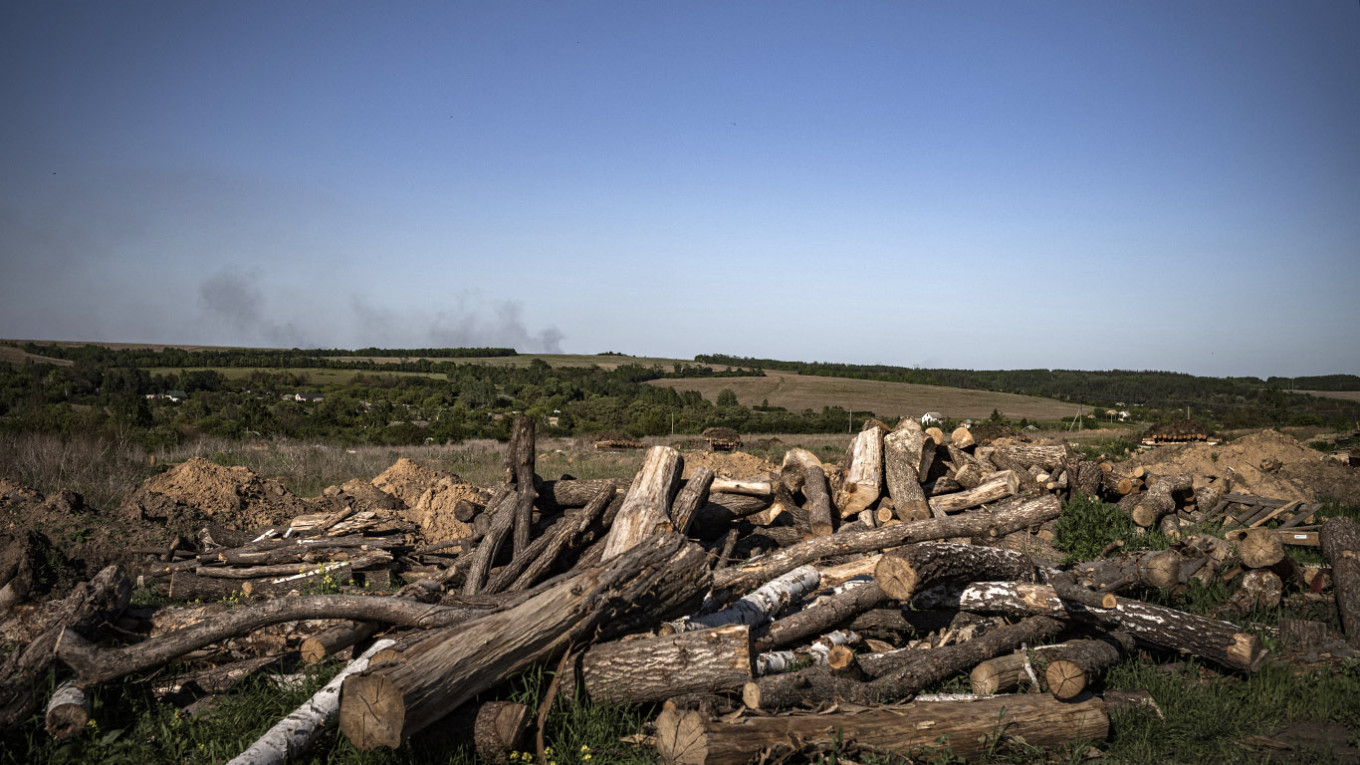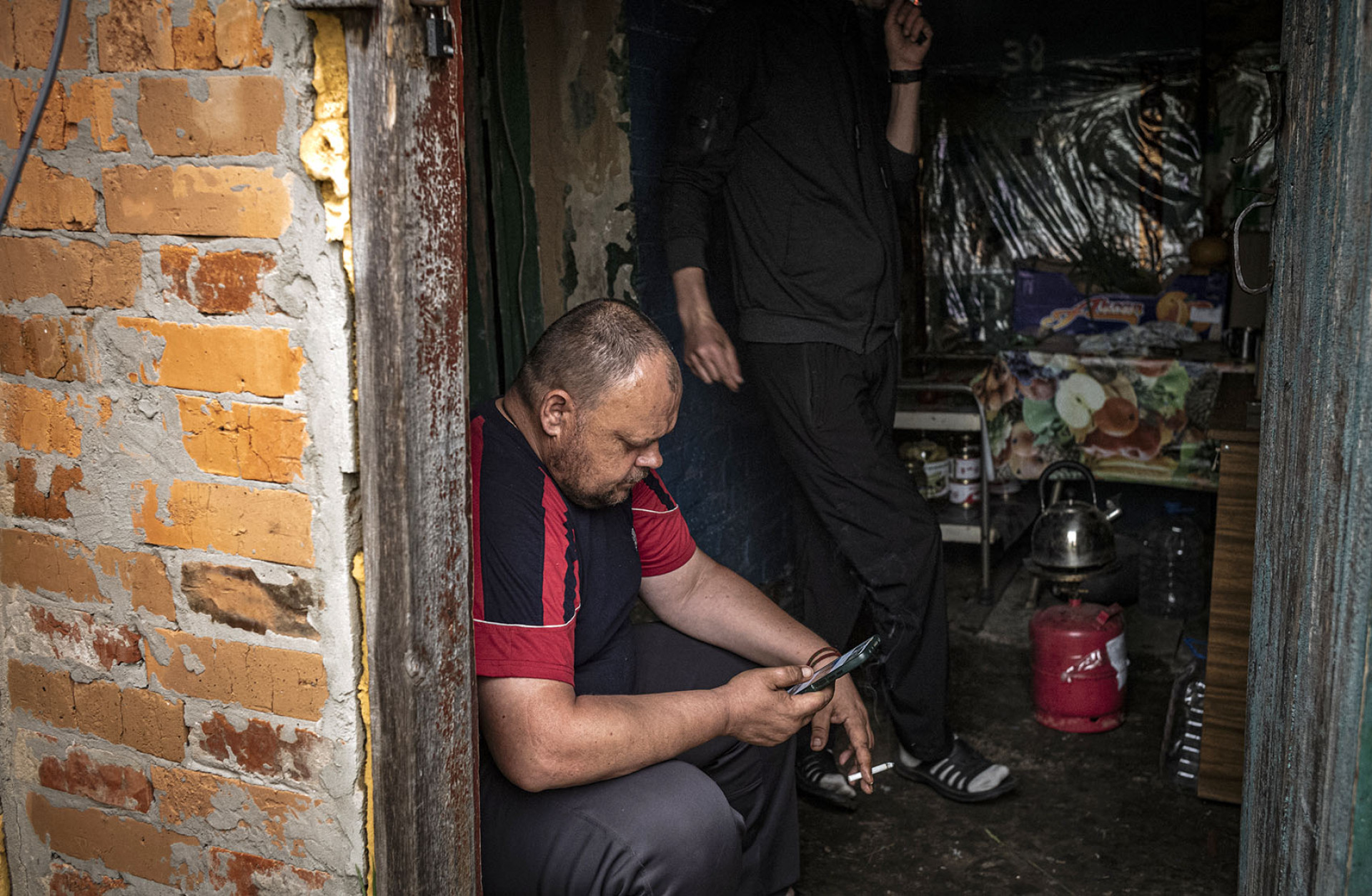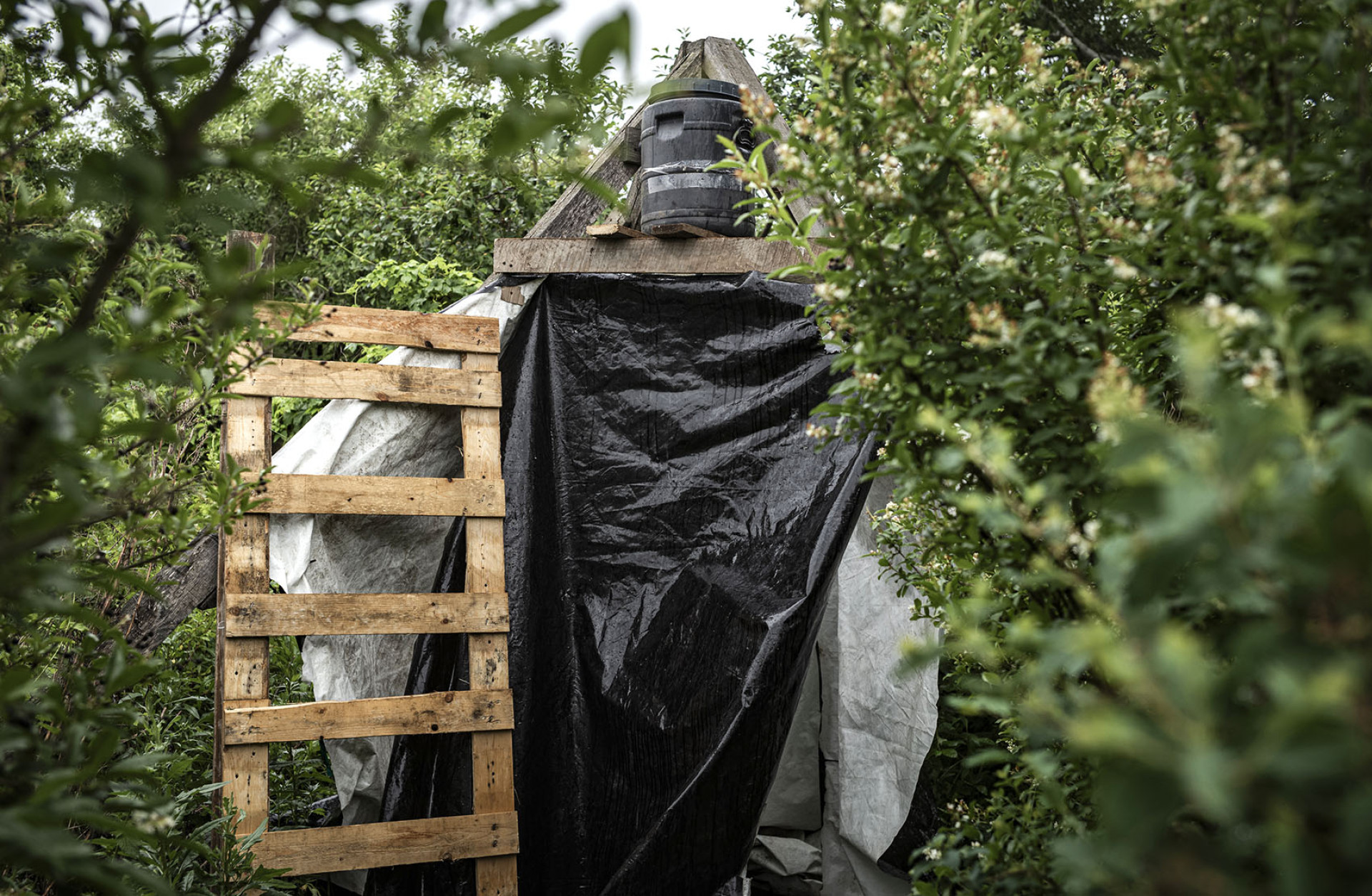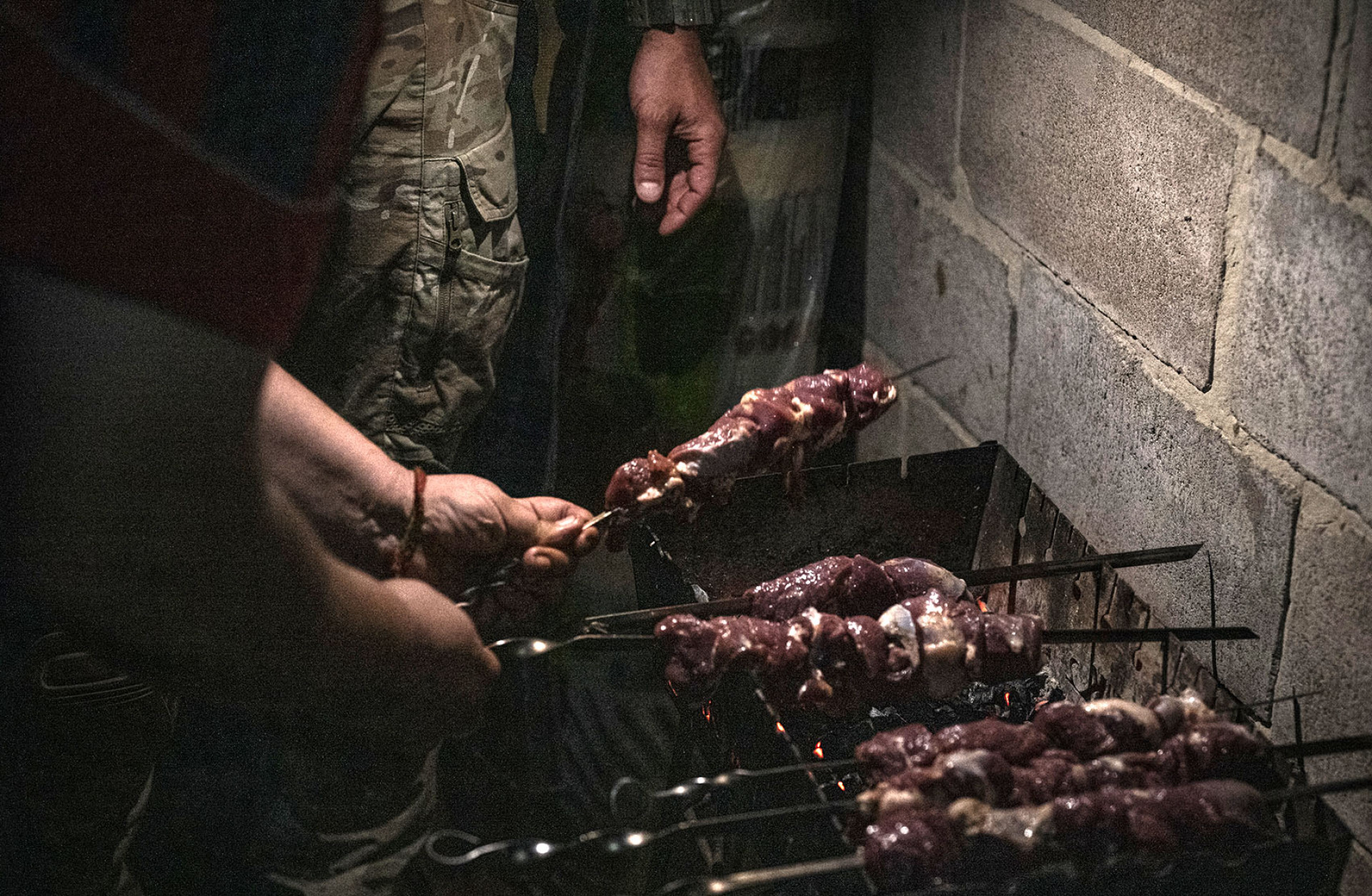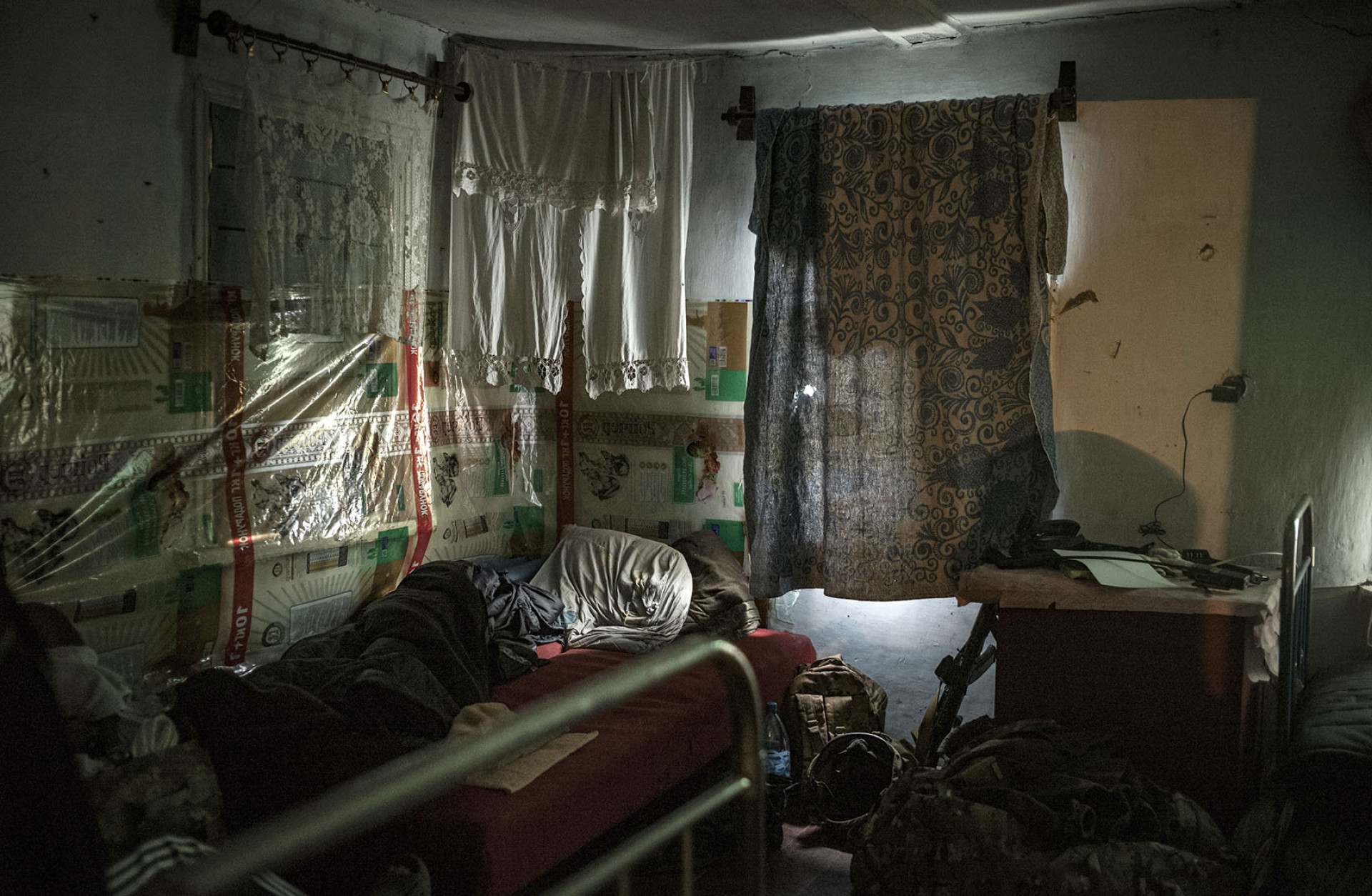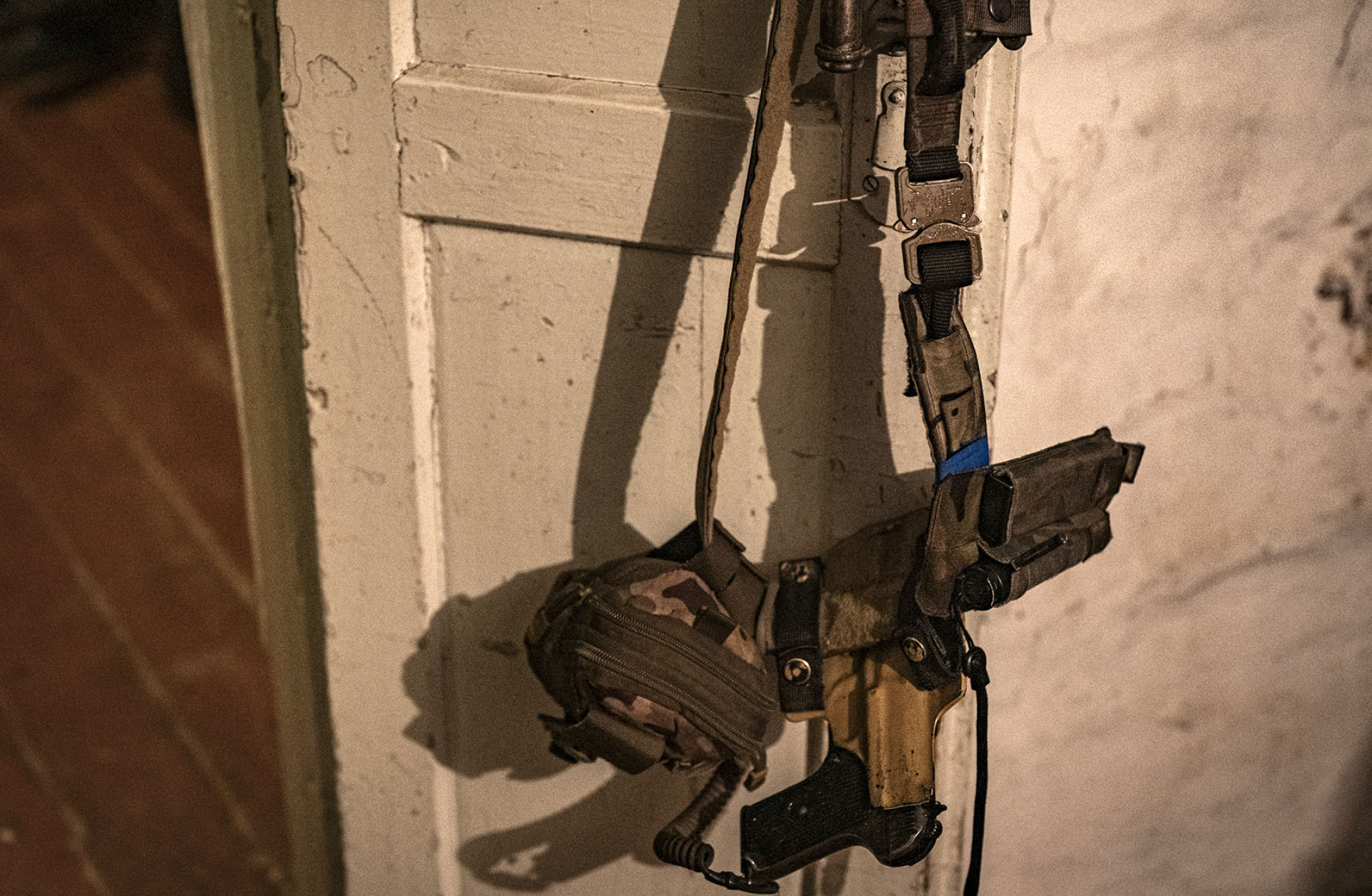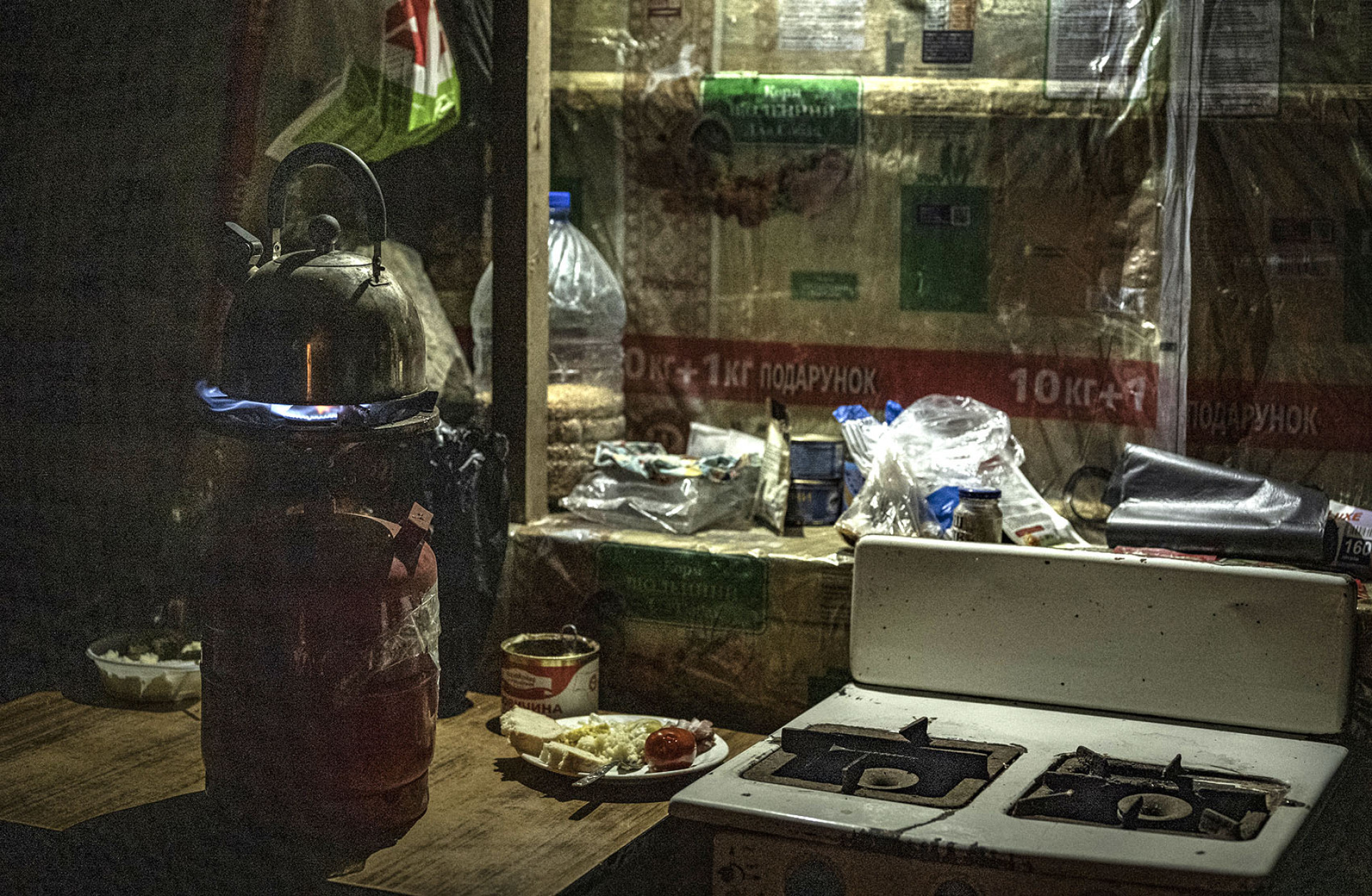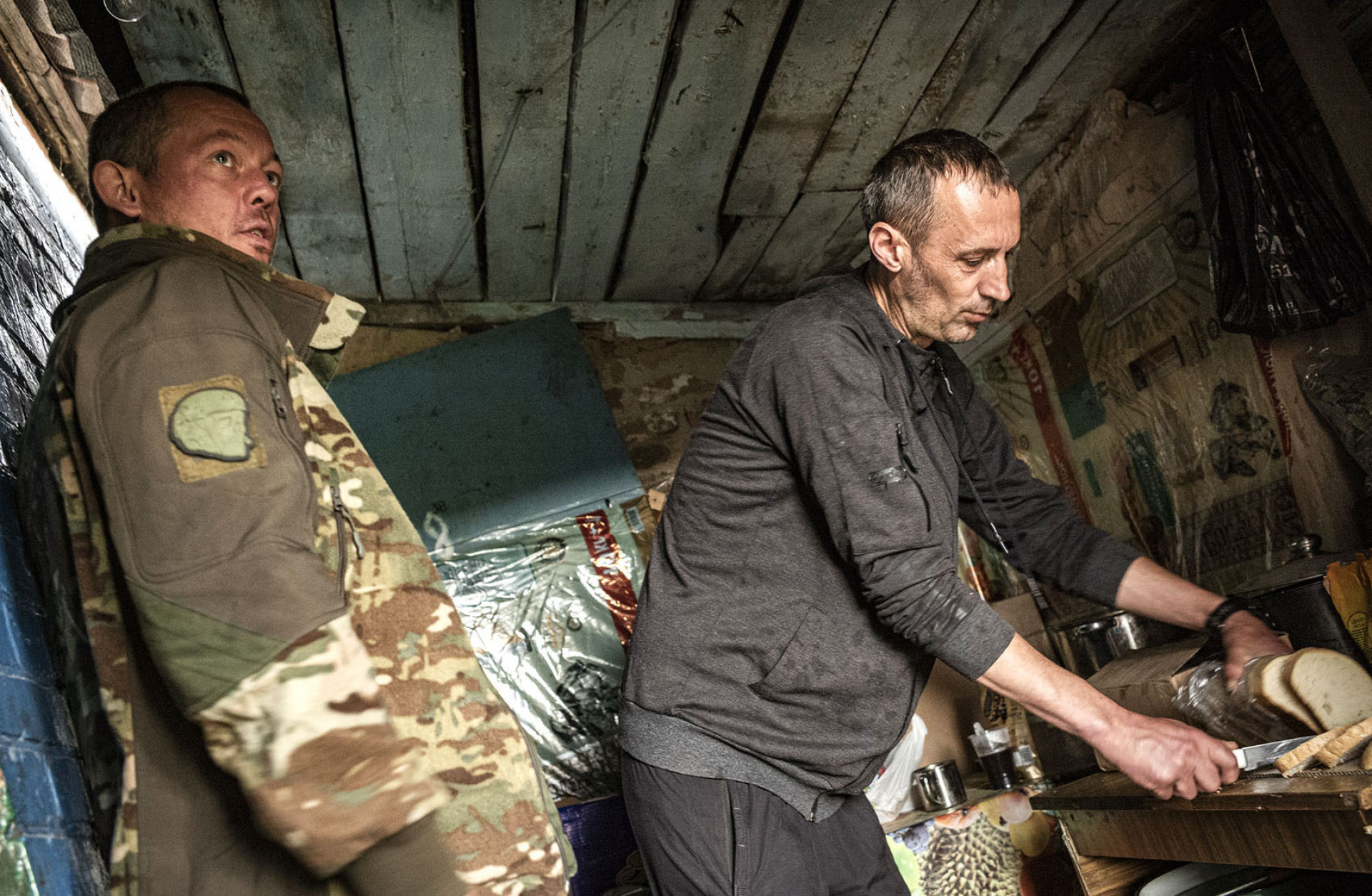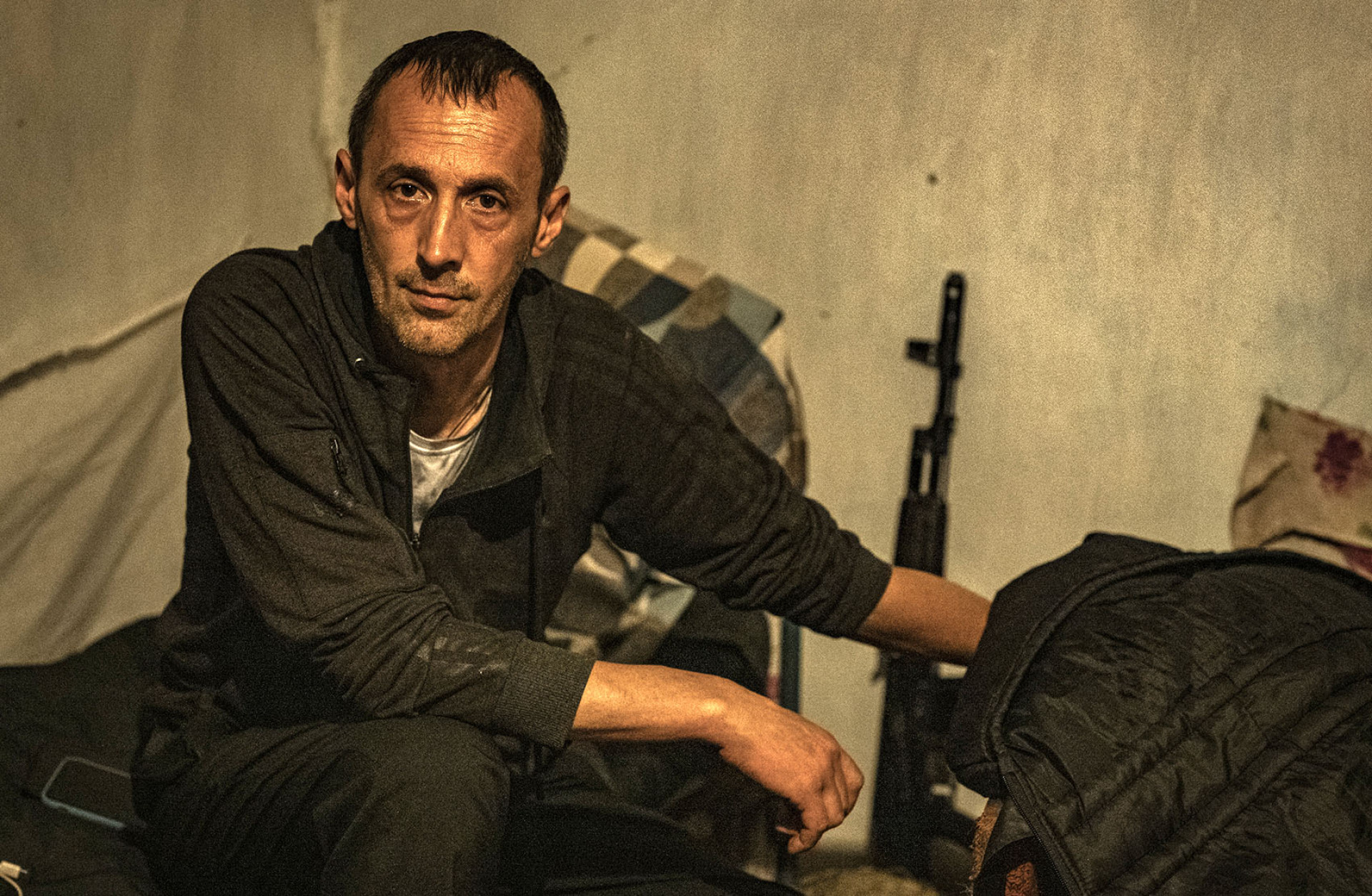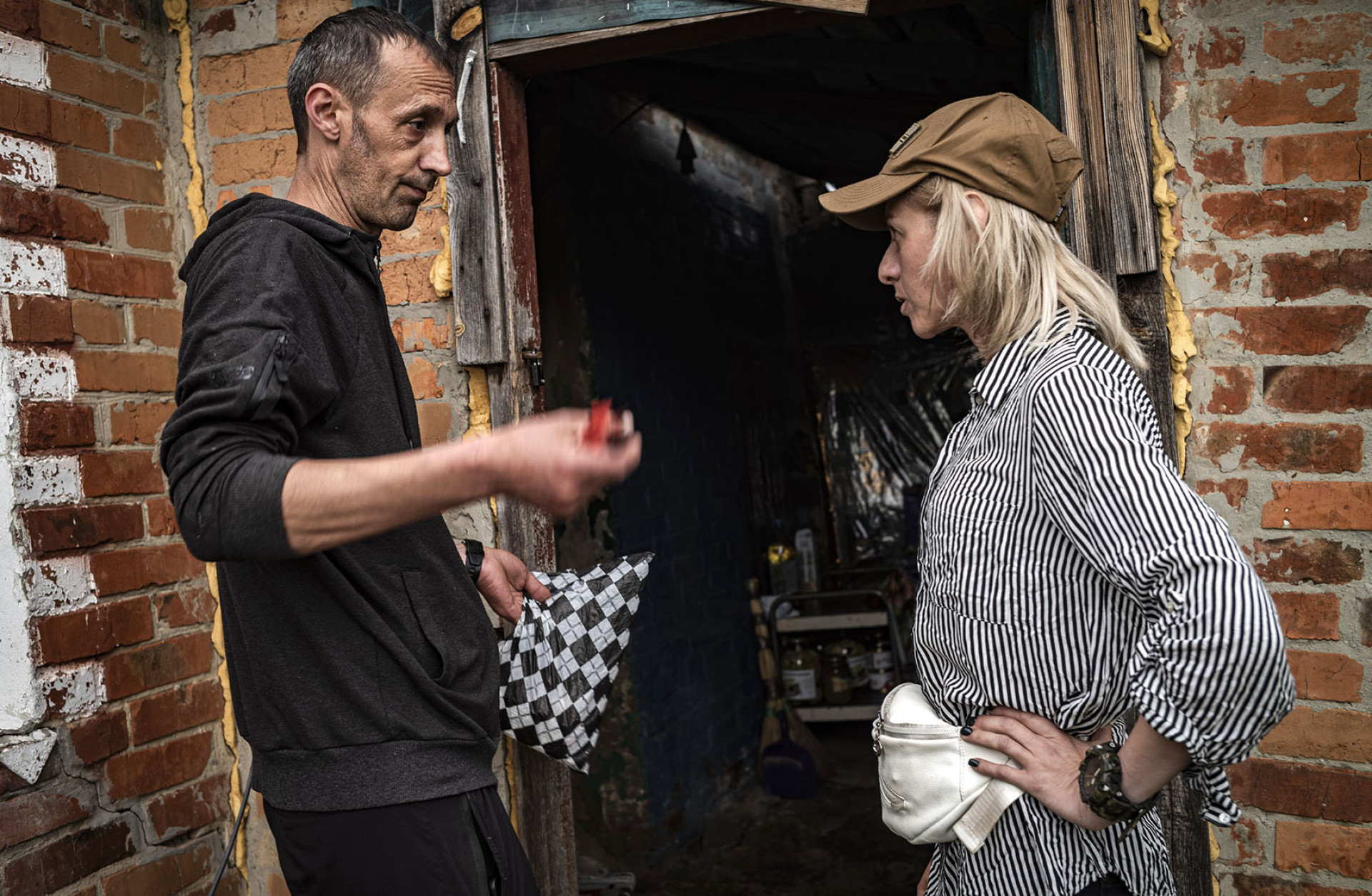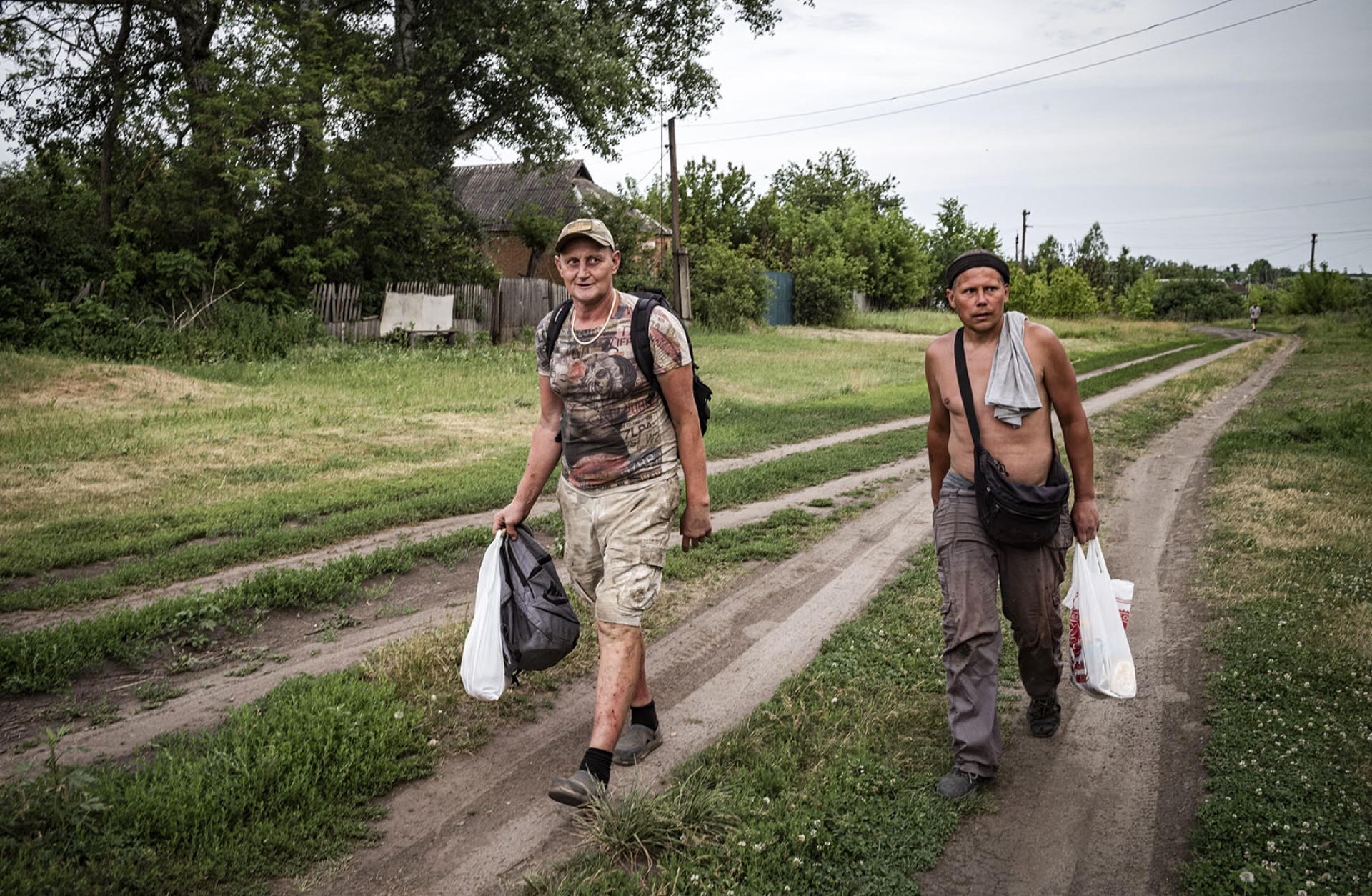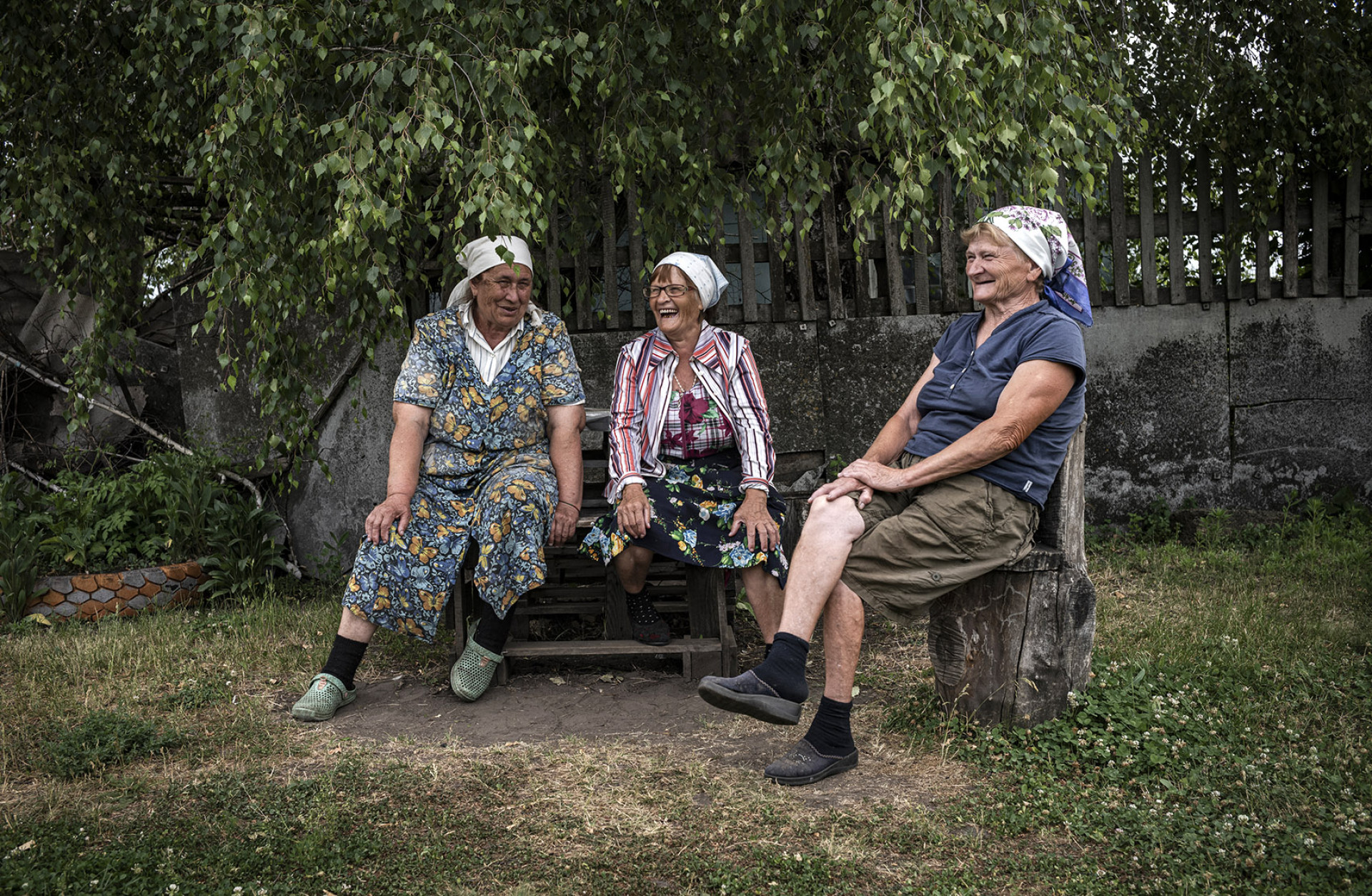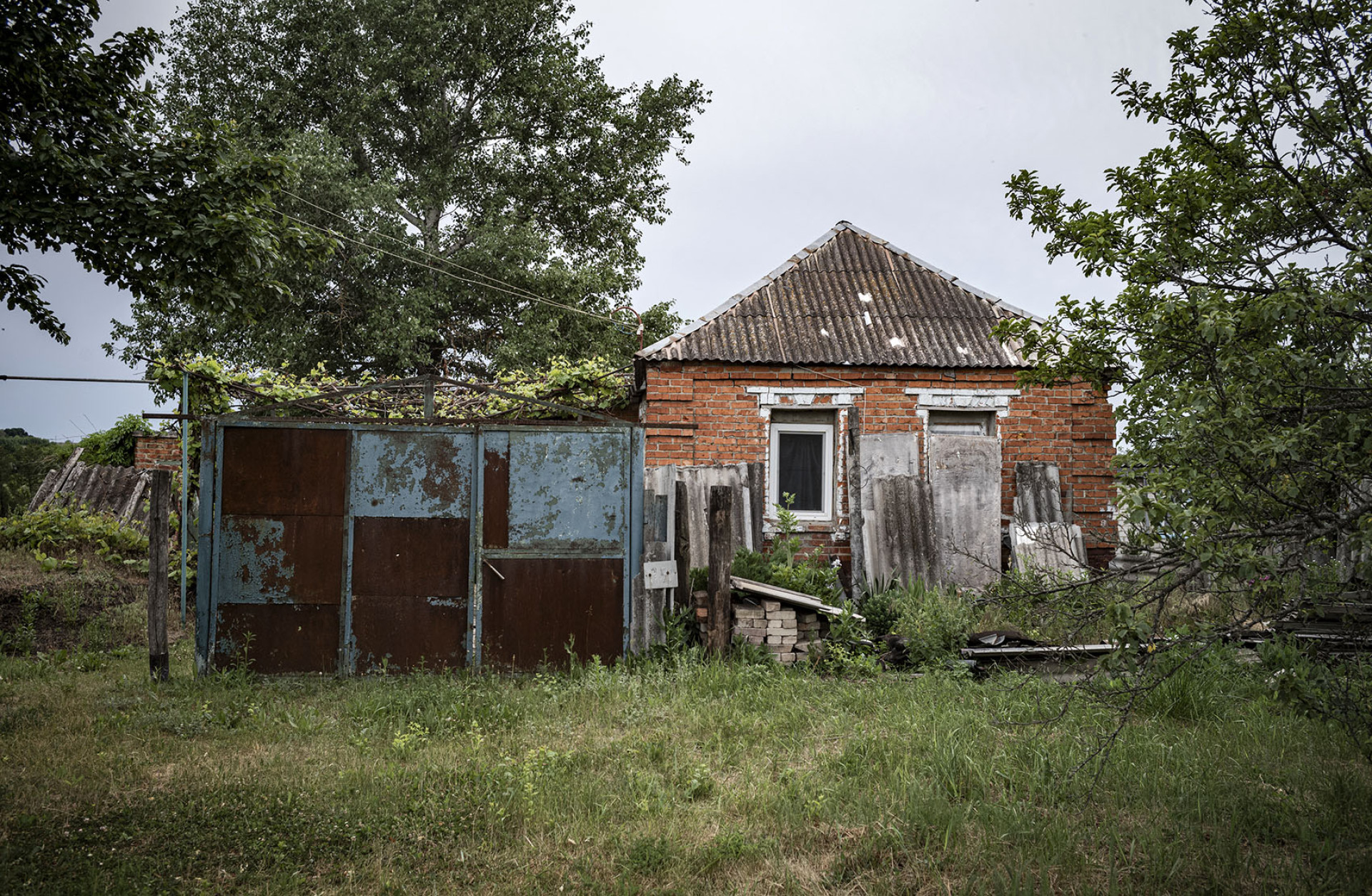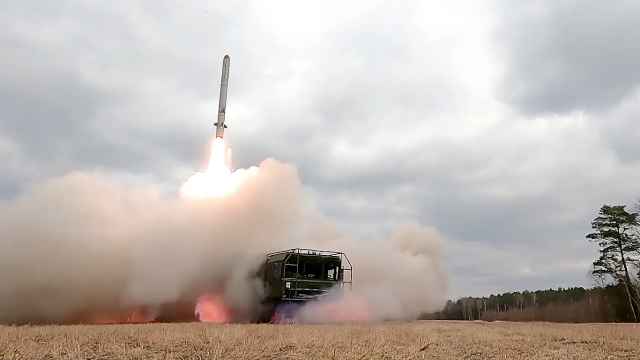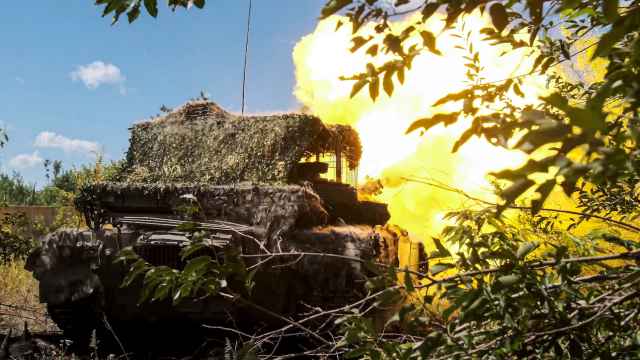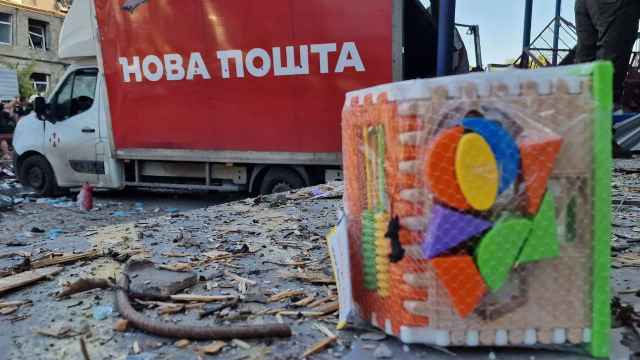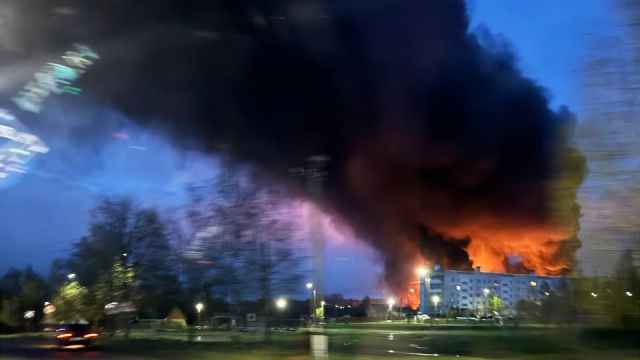In a forest in the Kharkiv region, Commander Vyacheslav walks briskly, his eyes fixed on the sky. The radio on his shoulder crackles: "The sky is clear, no more drones, we can go."
The men of one Territorial Defense Brigade of Kharkiv have come to locate a Ukrainian tank destroyed earlier by a Russian drone in the Peremoha sector, a small village situated between the third and second lines of the front.
Vyacheslav, a 45-year-old former MMA fighter in Kharkiv, knows the region well. He fought there with his men first at the beginning of the war, and then during the Ukrainian counteroffensive in June 2022.
"I used to play war games here when I was a kid," the commander explains with a sly smile.
Despite weeks of intense combat showing on their faces, morale is returning.
"The fighting was very tough," Vyacheslav says. "Once again, with the little equipment and men we had, we managed to stop the Russians."
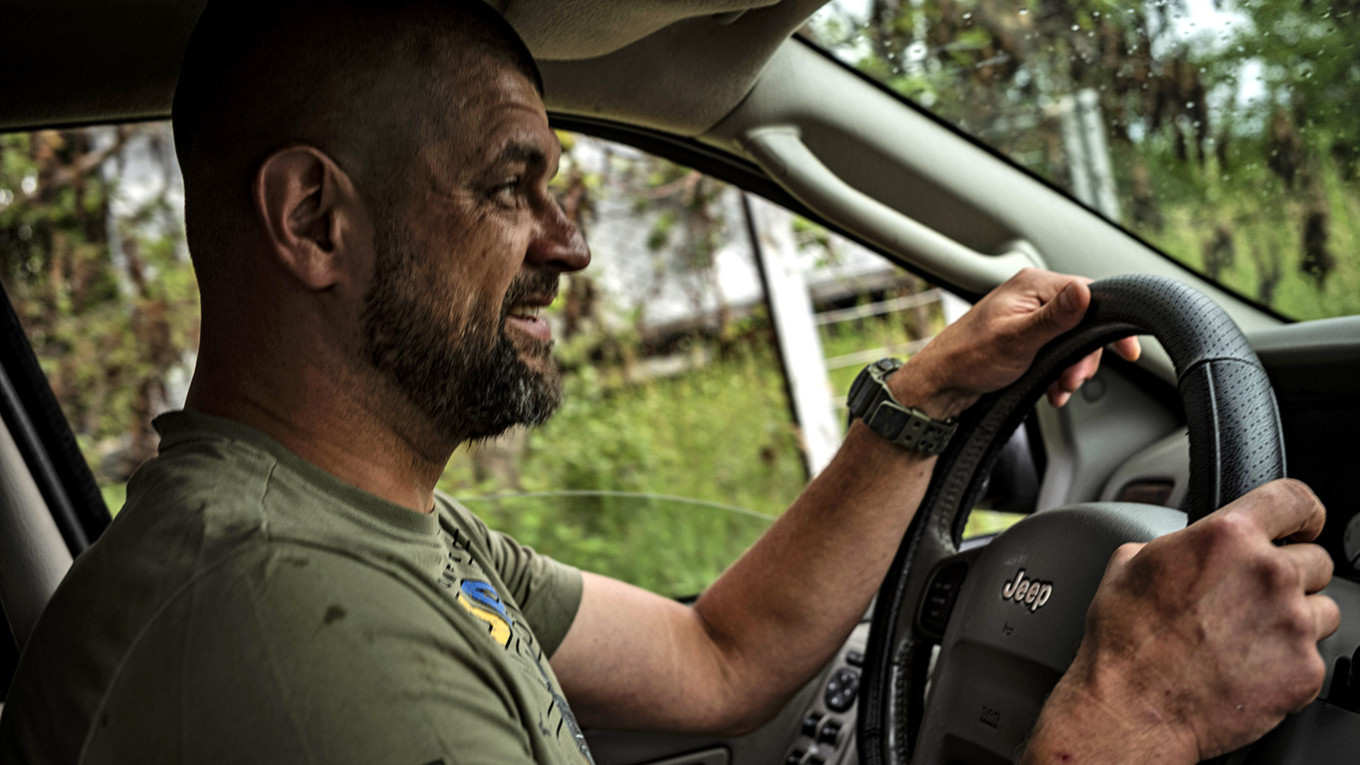
For the commander, this is proof that Ukraine will eventually win the war.
"We know why we are fighting, especially here in Kharkiv, where our families and friends live. So of course, we are even more motivated," he says. "On the other hand, when we capture Russian prisoners, we see that they don't know why they are fighting. For me, they have no chance of winning the war."
The Donbas front
At the end of May, Ukrainian President Volodymyr Zelensky announced that the Russian offensive in the Kharkiv region had failed. However, the Ukrainian army is still struggling in the Donbas, where its forces have been retreating step by step since February 2024.
For Hamlet, the unit’s drone operator, the Russians’ momentum in the Donbas is unrelated to their offensive in the Kharkiv region.
"We knew the Russians were going to launch an offensive in this sector. We prepared for it and sent reserve units allocated to this part of the front," he explains. "There has been momentum in the Donbas for several months due to the Russian army's efforts and our lack of ammunition rather than a real strategy on their part."
Serhii, one of the brigade's soldiers, is more categorical.
"For Moscow, Kharkiv is Russian, so they try to take as much territory as they did at the beginning of the war. I don't think they are thinking beyond that," Serhii says.
The Ukrainian armed forces’ attention is occupied by another front as well: the upcoming U.S. presidential election. While many soldiers of the unit are occupied day to day with their own country’s difficulties and do not follow international politics, Commander Vyacheslav closely follows both European and American politics.
"It's a country that interests me a lot, with a real culture of freedom,” he says, “but I think that if Trump comes to power, he might launch a total war against China and drag the world into a third world war."
Despite being aware of the stakes of the American elections, the commander admits that he is primarily concerned with managing their daily lives.
"I am worried about a Trump victory," Vyacheslav says. "I still think Biden is more loyal to Ukraine, and he has a very good team that understands what needs to be done. I don't think if Trump wins the election, he will abandon Ukraine, but what is certain is that the support will not be the same, and it won't be for the better."
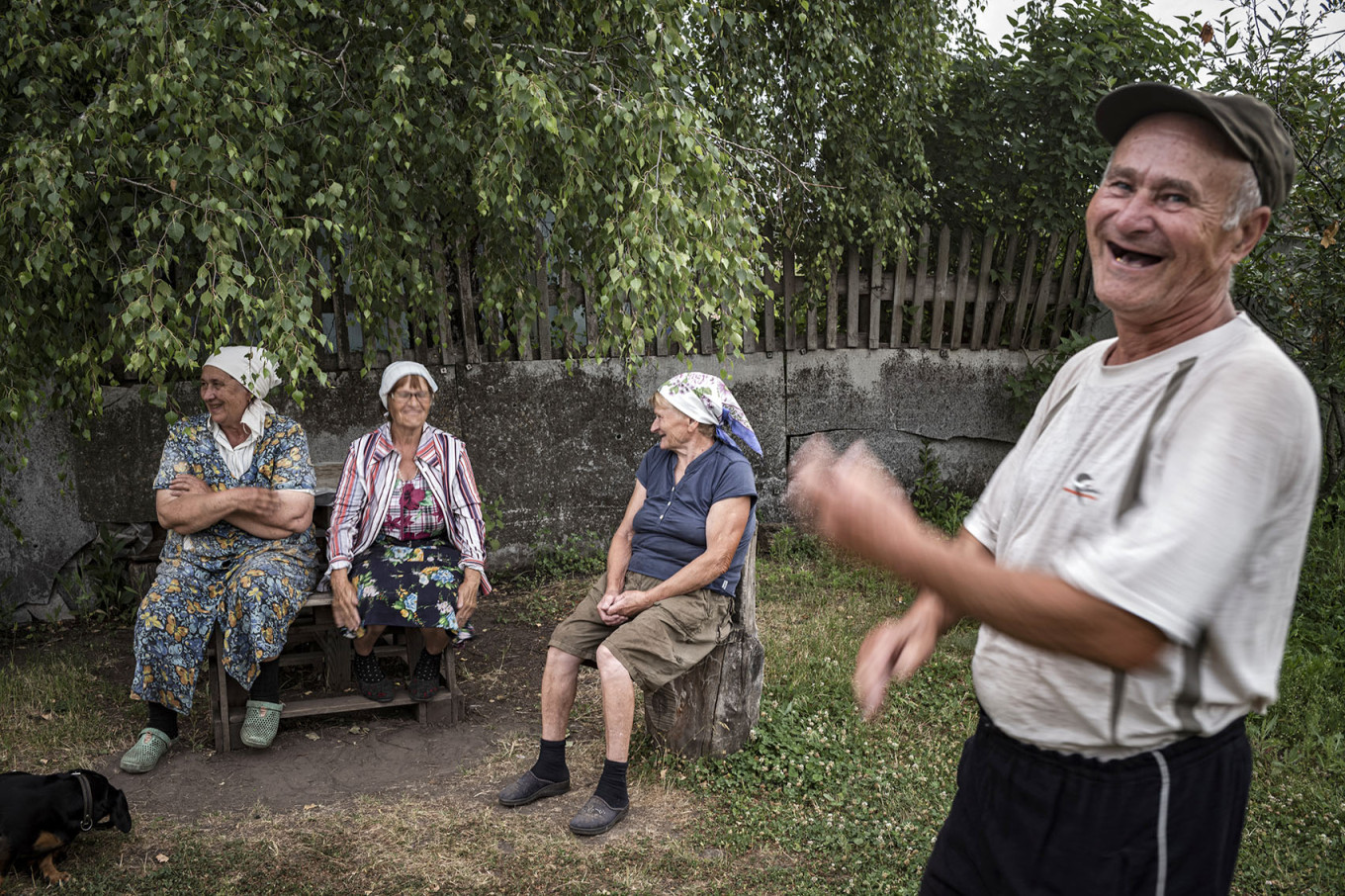
Europe's support, on the other hand, seems more assured to him. With the victory of the Labour Party in Britain, which has renewed its support for Ukraine, and the defeat of far-right candidate Marine Le Pen, known for her pro-Putin leanings, in the French legislative elections, Vyacheslav is not too worried about defection in the European camp.
"The security of Ukraine is also the security of Europe, and I think that is something Europeans have understood," explains the commander.
Keeping the faith
Despite the risks of a reduction in American aid following the election, Vyacheslav, buoyed by their successes on the Kharkiv front, continues to believe in an imminent victory.
"We stopped the Russians. The front is stabilized. The offensive wasn't a surprise, and they had to sacrifice a lot of men and equipment that they can no longer use in the Donbas," he said.
Vyacheslav also believes that the difficult days are behind them and that Western aid is starting to make a difference on the front.
"I can't reveal everything because it's classified, but all I can say is that we are seeing an improvement in our capabilities and that our brigade has received more than we could hope for."
The commander is particularly pleased with the arrival of Bradley vehicles and new grenade launchers.
"It will take us some time to learn to use them to their full potential, but it's very good news," he says.
Ansar, who commands a unit of foreign fighters, is much more direct about the arrival of Western aid.
"We have almost doubled our firing rate since the beginning of the Russian offensive. This allows us to maintain enough firepower to keep the Russians at bay."
Originally from Chechnya, Ansar is part of an elite unit sent to Kharkiv before the start of the Russian offensive.
"We knew they would attack, so we went on reconnaissance behind their positions to harass their logistical lines.
"But now that we have Western authorization to strike Russian territory with their weapons, we can just hit their logistics with HIMARS," explains Ansar, who also confides that, in his opinion, this offensive highlights the dysfunctions of the Russian army.
"The Russians had no particular strategy. They just knew we were about to receive a new influx of American aid, so they tried to exploit this window of opportunity to break our front. Again, without success."
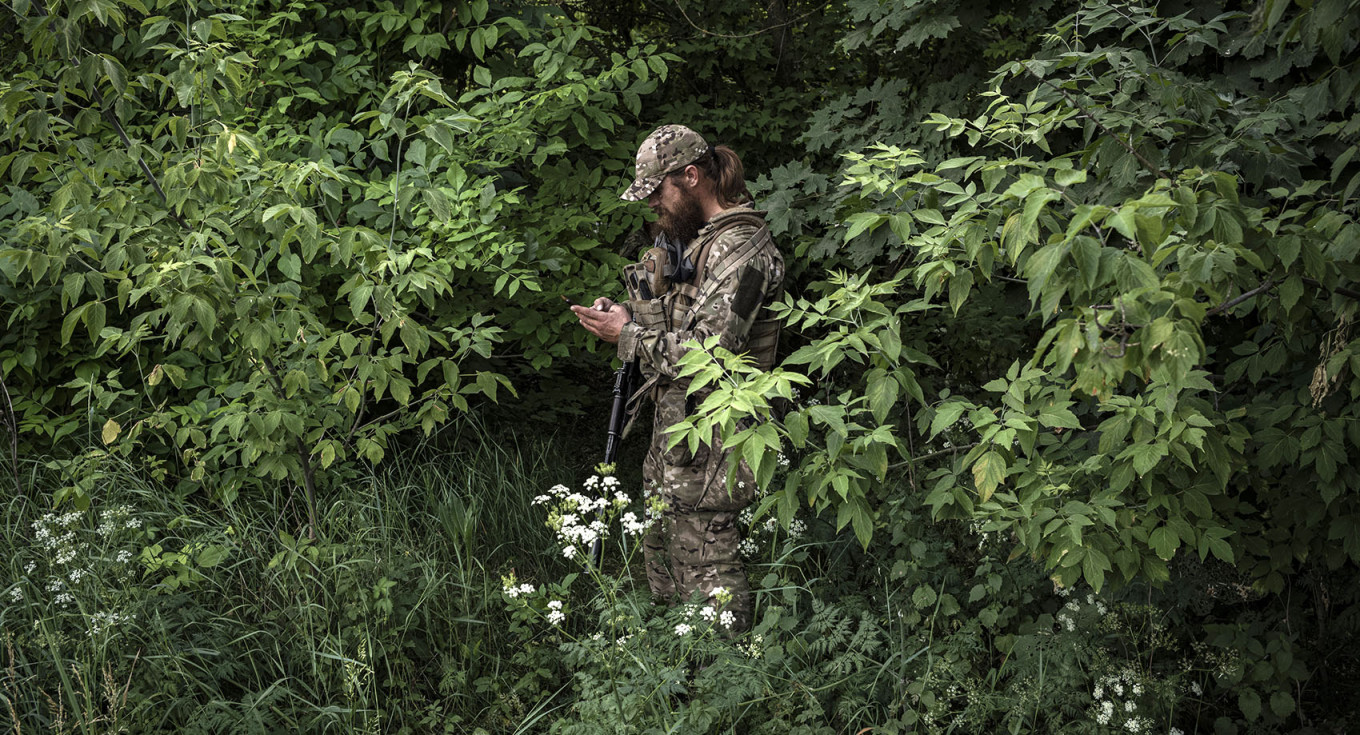
Back from the mission
Back from the mission, the team, settled in a wooden house about 10 kilometers from the front, is busy preparing a meal.
Vadim, 40, shirtless, cuts a chicken and prepares the shashlik (kebab) on a metal skewer. Next to him, on a wooden chair, Denis, 35, smokes a cigarette and heats a white tin coffee pot on a small stove. Everyone around the rusty metal barbecue relaxes and laughs.
Serhii explains that they try to have a good time and eat well almost every night. "We don't know if we will still be alive next week, so we live as if there is no tomorrow."
"It's also important to keep morale up, and we need moments like these to relax," explains Vyacheslav. "They have all been fighting since the beginning of the war and don't often see their families."
Yann, a former bus driver in Kharkiv, has seen his wife and daughter for only about 15 days since February 2022.
Over a piece of meat, the 45-year-old confides: "At first, the hardest part was not seeing our family. Then it was Bakhmut where I was injured. Now, it's the uncertainty of not knowing what tomorrow will bring."
A Message from The Moscow Times:
Dear readers,
We are facing unprecedented challenges. Russia's Prosecutor General's Office has designated The Moscow Times as an "undesirable" organization, criminalizing our work and putting our staff at risk of prosecution. This follows our earlier unjust labeling as a "foreign agent."
These actions are direct attempts to silence independent journalism in Russia. The authorities claim our work "discredits the decisions of the Russian leadership." We see things differently: we strive to provide accurate, unbiased reporting on Russia.
We, the journalists of The Moscow Times, refuse to be silenced. But to continue our work, we need your help.
Your support, no matter how small, makes a world of difference. If you can, please support us monthly starting from just $2. It's quick to set up, and every contribution makes a significant impact.
By supporting The Moscow Times, you're defending open, independent journalism in the face of repression. Thank you for standing with us.
Remind me later.



